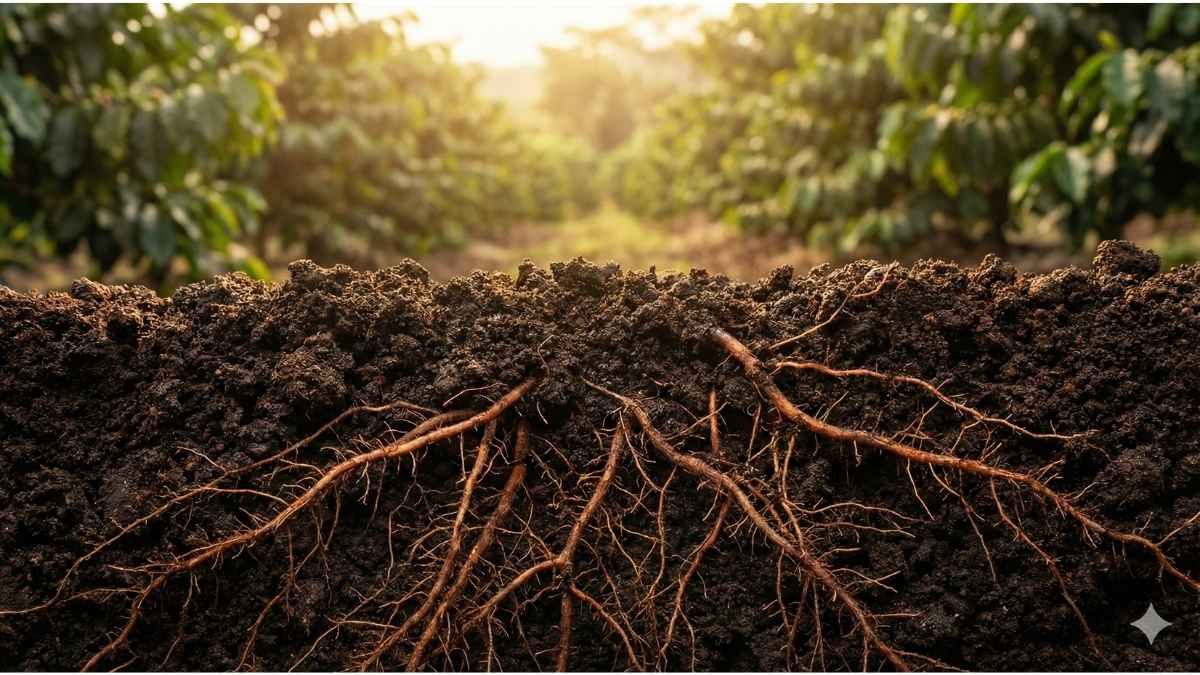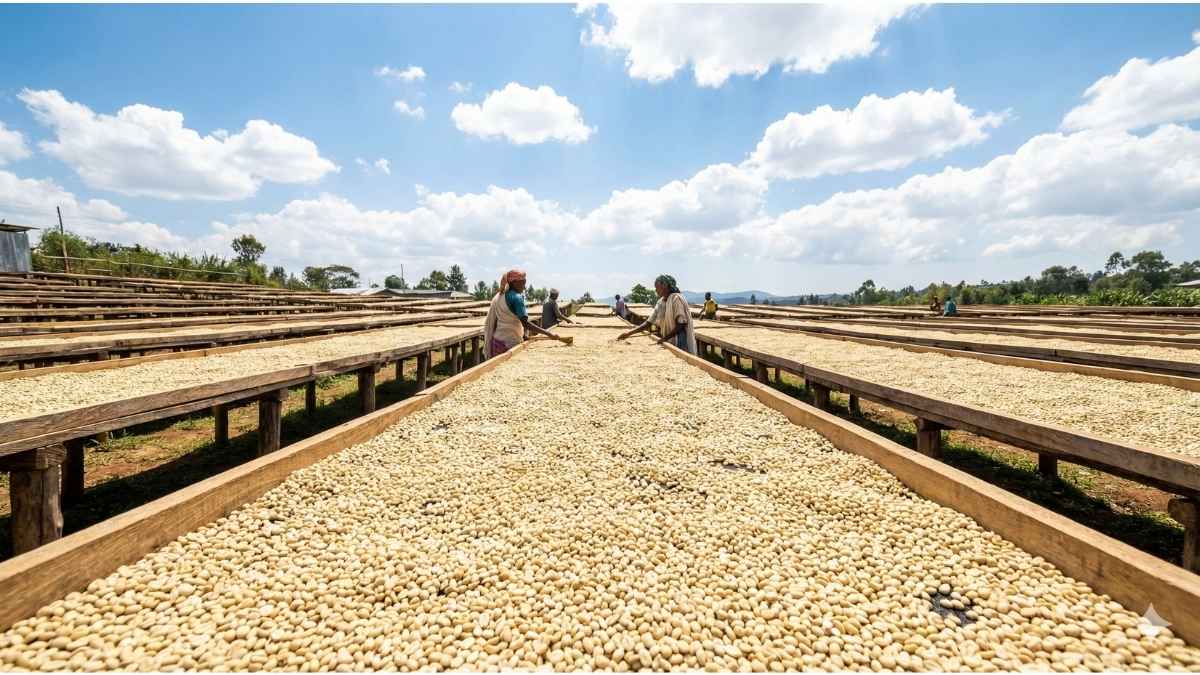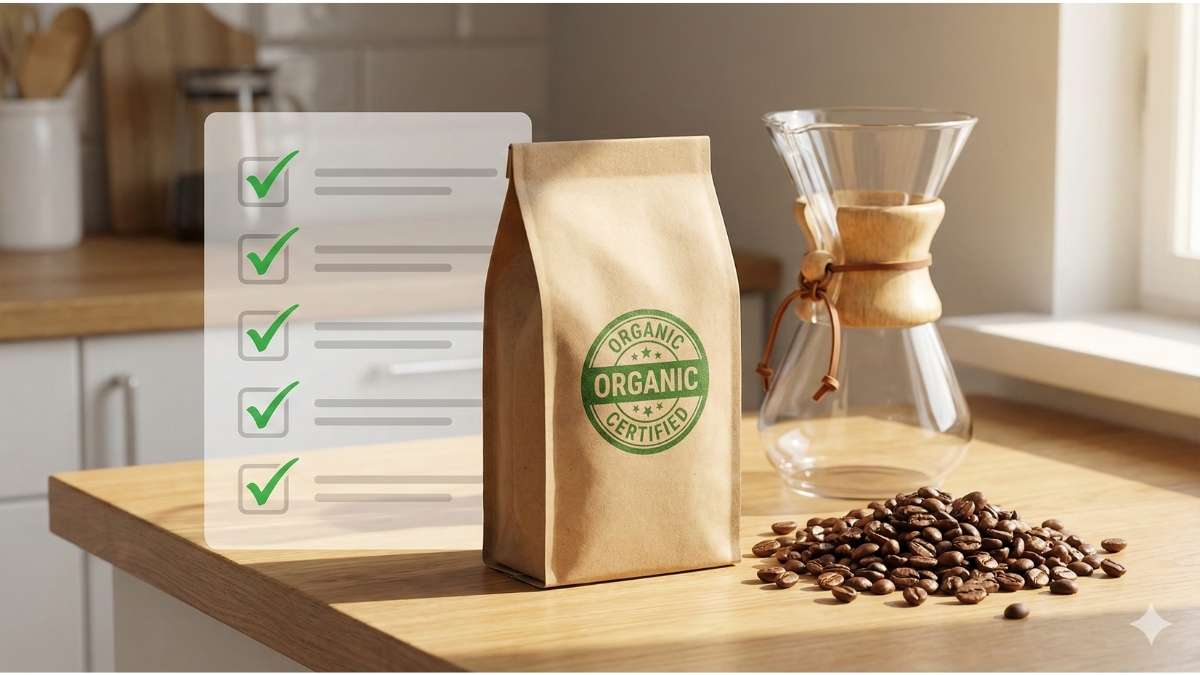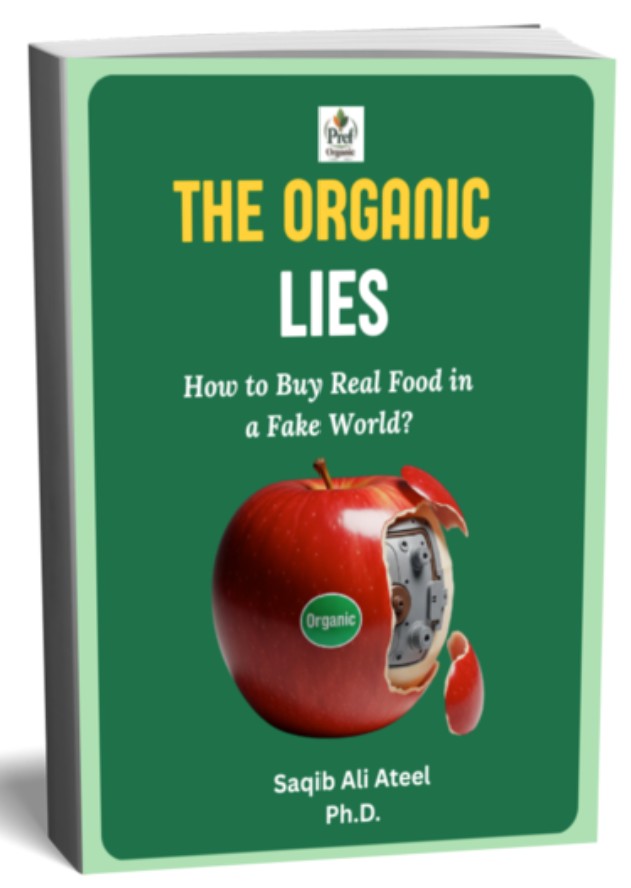The Scientific Truth About Organic Coffee: 2026 Safety
Analysis
Switching to organic coffee is usually about one thing: avoiding toxins to protect your morning ritual. You trust that green-and-white seal like a shield. You assume what is brewing in your mug is just coffee, not a chemical cocktail.
But as a PhD scholar who digs into the data and a farmer who works the soil, I have to share a hard truth. The "Organic" label is a legal definition, not a bulletproof vest.
The data heading into 2026 shows that "perfectly pure" coffee is basically a myth. We know now that a clean cup isn't just about the sticker on the bag. It’s really about the history of the soil, how hot the roaster gets, and the actual ground where the roots go down. 🌍
I’m not here to ruin your morning brew. I want to give you the real story on glyphosate and mold that most ads ignore. By the end, you’ll be able to look right past the sticker and know if that bag is actually clean.
⚡ The 30-Second Guide to Buying Safe Organic Coffee
Don't have time for the chemistry lesson? Here is the exact criteria I use to buy organic coffee for my own family. If a bag meets these 5 rules, it is safer than 99% of what is on the shelf.
- ✅ Certification: Must be USDA Organic. (It’s not perfect, but it is the baseline).
- 🧪 The Test: Look for "Third-Party Tested" specifically for Glyphosate/AMPA and Mycotoxins.
- 💧 The Process: Choose "Washed" or "Wet" Process. (Crucial for mold avoidance).
- 🌍 The Origin: Choose East Africa (Ethiopia/Kenya) or Central America. Avoid volcanic islands if you worry about heavy metals.
- 📦 The Package: Whole Bean only. Never pods. Never plastic.
The Pesticide Reality: Glyphosate in Organic Coffee?
 Deep Roots, Long Memories: Perennial coffee trees can pull "ghost" residues from the soil legacy of decades past.
Deep Roots, Long Memories: Perennial coffee trees can pull "ghost" residues from the soil legacy of decades past.The primary fear for most of us is Glyphosate (the active ingredient in Roundup). Organic farmers absolutely do not spray this. However, the environment—and the soil itself—has a long memory.
The AMPA Revelation (Why Certification Isn't Enough)
Here is the finding that is reshaping the industry for 2026. The Clean Label Project (CLP) analyzed 57 top-selling coffee brands. Their results contradict the core promise of the organic coffee sector.
- 100% of tested organic samples contained Aminomethylphosphonic acid (AMPA). ⚠️
- The Shock Factor: Organic beans actually averaged 5% higher AMPA levels than conventional ones.
How is this possible?
It’s called "Soil Legacy."
AMPA is a breakdown product of herbicide Glyphosate. It binds tightly to the soil and persists for years. Even if a farmer switches to organic today, the coffee trees can still uptake these "ghosts" of farming past. Coffee trees are deep-rooted perennials. They pull from deep within the earth.
 Soil Legacy: Why deep-rooted perennials can uptake residues even years after a farm switches to organic.
Soil Legacy: Why deep-rooted perennials can uptake residues even years after a farm switches to organic.The Roaster’s Defense: Thermal Degradation
Before you pour your brew down the sink, look at the physics of roasting. The heat that browns the bean is your first line of defense. 🔥
- Glyphosate: Structurally unstable at high heat. It degrades significantly at temperatures above 198°C.
- AMPA: Extremely thermally stable. While the roasting fire destroys the parent herbicide, the AMPA fossil record remains intact.
While the bean holds the residue, the human outcome is positive. Leading research confirms that switching to a fully organic diet reduces urinary glyphosate levels by up to 70% within one week. The organic diet works even if the individual bean isn't perfect.
The "Mold-Free" Myth: Is Organic Coffee Safer?
Marketing gurus love to sell "Mold-Free" coffee as a magical category. The reality is simple. Mold is a biological inevitability in agriculture, not a moral failing.
Why "Organic" Doesn't Mean "Mold-Free"?
Fungi are natural. When organic farmers renounce synthetic fungicides, they rely on pruning and airflow to stop mold. If they fail, or if storage conditions are humid, mold blooms. 🍄
- Global Reality: A comprehensive review found Ochratoxin A (OTA) in 54.6% of over 3,000 coffee samples. There was no free pass for organic beans.
- The Risk: OTA is a storage issue, not a farming input. It thrives in moisture.
How to Actually Avoid Mold (The Geography Matrix)?
To avoid mold, stop looking at the certification. Start looking at the processing method and origin.
 The Safe Choice: Raised drying beds allow airflow, preventing the mold growth common in patio-dried beans.
The Safe Choice: Raised drying beds allow airflow, preventing the mold growth common in patio-dried beans.Nutritional Density: Conventional vs. Organic Coffee
Trade-Offs
 The Trade-Off: Conventional beans grow fast (more CGA), while organic beans fight hard (more anti-inflammatory Gallic Acid).
The Trade-Off: Conventional beans grow fast (more CGA), while organic beans fight hard (more anti-inflammatory Gallic Acid).We often assume "Organic" means "More Nutritious." The latest phytochemical data suggest it is not that simple. It is a trade-off between two different types of defense systems.
The Trade-Off Table: What Are You Drinking?
Conventional coffee is "fed" to grow fast. Organic coffee has to "fight" to survive. This changes the chemistry in your cup.
The Scientific Nuance: Conventional fertilizer hits the plant with a massive dose of Nitrogen. This fuels rapid growth and the accumulation of CGA.
Why We Choose Organic? While conventional gives you more "bulk" antioxidants, organic provides a targeted, anti-inflammatory toolkit (Gallic Acid + Quercetin). For long-term health and inflammation control, the organic profile is superior.
Industrial Contaminants: Heavy Metals and Plastic
Sometimes the poison isn't in the coffee. It is in the cup or the soil geology.
The Hidden Plastic: Phthalates in Your Cup
The Clean Label Project found that packaging is often the source of endocrine disruptors, not the farm.
Heavy Metals: Geology vs. Pollution
Heavy metals like lead (Pb²⁺) and cadmium (Cd²⁺) often come from the earth's crust. They are not always from a factory.
- Volcanic Risk: Hawaiian coffees tested highest for heavy metals due to the young, volcanic soil. 🌋
- Ancient Safety: African origins (like Ethiopia) tested among the safest. This is thanks to older, sedimentary soils.
Sustainability & Ethics: The "Yield Gap"
Reality
Critics argue that organic farming is inefficient. They claim it requires too much land. As a student of the soil, I see this as a management issue. It is not a biological one.
Does Organic Farming Waste Land?
- The Gap: Historically, organic yields trail conventional by 18–25%.
- The Agroforestry Fix: We can use multi-cropping (growing coffee under shade trees with bananas or avocados). This reduces the gap to just 8–9%. 🌳
The Soil "Bank Account"
Conventional farming withdraws from the soil. Organic makes a deposit.
- Organic systems hold 15.6% higher soil organic carbon.
- They retain water better (53% capacity). This makes farms resilient against the droughts we are seeing more frequently.
The Connoisseur’s Guide: Does Organic Coffee Taste
Better?
Does a "clean" conscience taste better? According to sensory data leading into 2026, yes. But only if the farmer knows what they are doing. ☕
Biofertilizers and Cup Score
You can't just stop spraying chemicals and expect good coffee ("Organic by Neglect"). You have to feed the soil ("Organic by Design").
- The Data: Farms using humic acids (organic compost) achieved sensory scores of 83.67.
- The Verdict: This pushes the coffee well into the "Very Good" Specialty Grade category.
🛒 Clean Coffee Buyer's Checklist

Meet Saqib
Saqib Ali Ateel is a PhD Scholar by training and a "student of the soil" by nature. He combines deep research, hands-on farming wisdom, and agricultural systems supervision to reveal what’s really on your plate. His mission is simple: to help your family navigate the food industry's complexity so you can eat cleaner, safer, and smarter.
Best Organic Coffee Brands (2026)
- Organic Mycotoxin Free Coffee
- Coffee Beans Storage
- Is Organic Coffee Better?
- 5 Top Benefits of Organic Coffee
- Black Coffee in the Morning
- Organic Coffee vs Regular Coffee
- Organic Shade-Grown Coffee
- Organic Low Acid Coffee
- Best Organic Decaf Coffee

